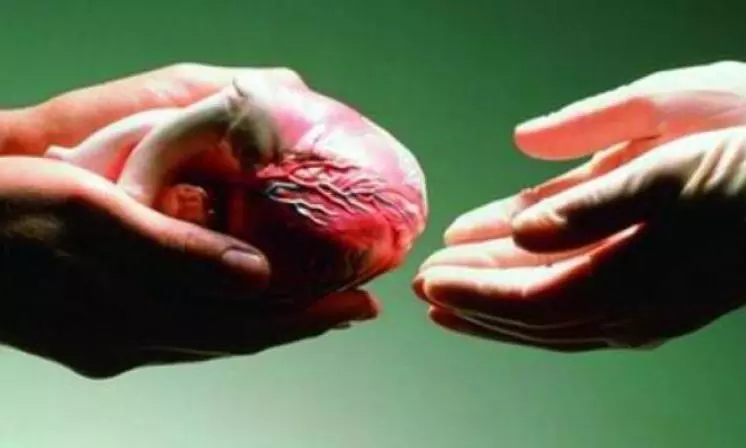Organ Donation in India: Bridging the Gap Between Life and Death
By : Guest Post
Update: 2024-11-27 07:14 GMT

With India’s vast population, the need for organ transplants is critical, yet organ donation rates remain among the lowest in the world. Organ Donation Day is a moment to reflect on the life-saving impact of organ donation and the steps we must take to improve donation rates across the country. Dr. Tushar Warke, Consultant Nephrology, Aditya Birla Memorial Hospital, Pune, shared some insights.
The Reality: India’s Low Organ Donation Rate
In India, more than 500,000 people require an organ transplant each year, but only a small fraction of these patients receive the organ they need due to a severe shortage of donors. India’s organ donation rate is currently 0.52 per million people, compared to 35 per million in countries like Spain and 26 per million in the United States. This gap leaves thousands of Indians waiting, with lives cut short due to unavailability of critical organs like kidneys, livers, and hearts.
Organ Demand at a Glance:
Kidney: Over 200,000 people need a kidney transplant each year, but only 8,000-10,000 transplants take place.
Liver: About 50,000 people require a liver transplant annually, but only 1,500 transplants are performed.
Heart: Approximately 20,000 people need a heart transplant, with fewer than 200 transplants happening each year.
Why is Organ Donation So Low?
The reasons behind India’s low organ donation rate are complex:
Lack of Awareness: Many Indians are unaware of the need for organ donation or how to become a donor.
Cultural and Religious Beliefs: While most religions support organ donation, there are widespread misconceptions. Surveys indicate that only 30% of Indians are comfortable with the idea of organ donation.
Infrastructure and Logistics: Organ donation requires a well-coordinated system for timely retrieval and transport of organs. Currently, this infrastructure is limited, especially in rural areas.
How Organ Donation Can Transform Lives
A single organ donor can save up to 8 lives by donating vital organs, such as kidneys, liver, heart, lungs, pancreas, and intestines. Additionally, tissues like corneas, bones, skin, and heart valves can benefit up to 75 more people. This means that even one donor can create a ripple effect, improving or saving lives across multiple communities.
Steps Taken by the Government and Healthcare Organizations
To address these challenges, the Indian government and healthcare organizations have launched several initiatives:
National Organ and Tissue Transplant Organization (NOTTO): This government body is responsible for overseeing organ donation and transplant activities in India. NOTTO has developed a central registry and promotes nationwide awareness campaigns.
State-Level Initiatives: States like Tamil Nadu and Maharashtra have implemented successful organ donation programs. Tamil Nadu has one of the highest organ donation rates in India, thanks to a well-organized system and proactive policies.
Green Corridors: For speedy transport of organs, especially in cities, green corridors are created with police assistance to clear traffic, ensuring organs reach hospitals on time.
What You Can Do: Steps to Become an Organ Donor
Becoming an organ donor is a straightforward process:
Register Online: Visit the NOTTO website or contact a local hospital to register as an organ donor.
Inform Family and Friends: Discuss your decision with family members. This ensures your wishes are honored and helps remove any hesitation during challenging times.
Carry a Donor Card: After registering, you can carry a donor card, which shows your commitment to organ donation.
With over 500,000 Indians in need of transplants, we all have the power to make a difference. Pledging to be an organ donor is a simple yet life-changing choice. This Organ Donation Day, let’s break myths, spread awareness, and help India progress towards a future where every individual in need has the chance to live a healthy, fulfilling life.
By choosing to donate, you’re not just saving lives—you’re creating a legacy of compassion and making an invaluable contribution to society.
Dr. Tushar Warke , Consultant Nephrology, Aditya Birla Memorial Hospital, Pune.

